|
posted Sunday, 18 February 2018, 21:52 (+0800), by Martin
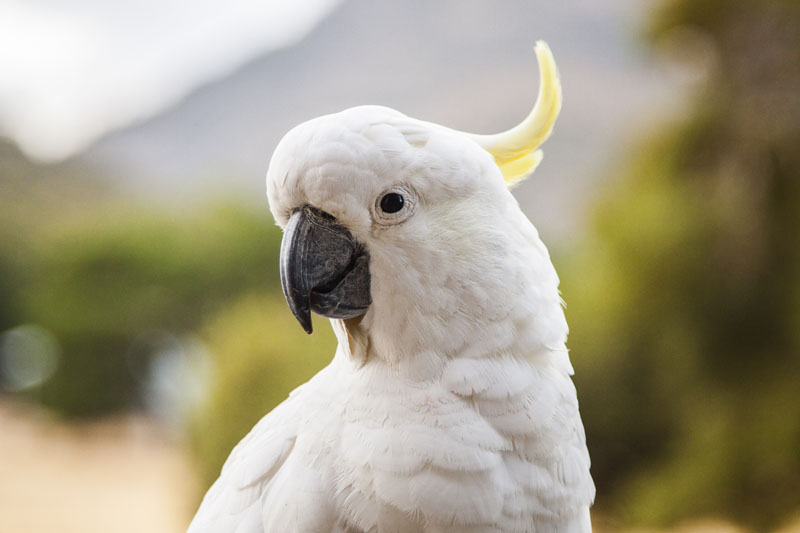
Halls Gap, Victoria, Australia
Canon EOS 50D, 24-105mm f/4L IS @105mm, 1/200 sec, f/4, ISO500
In January, we stayed in Halls Gap, in the Grampians national park for a few nights.
The back of the house we were staying in looked straight out over grassland and towards some of the mountains,
with plenty of wildlife visible every day. In the evenings we would see kangaroos and numerous birds.
Most days there were a lot of sulphur-crested cockatoos, and they were very friendly.
They would sit on our back fence, the kids were able to hand-feed them, and I was able to get very close for some photos.
posted Friday, 03 February 2017, 22:31 (+0800), by Martin
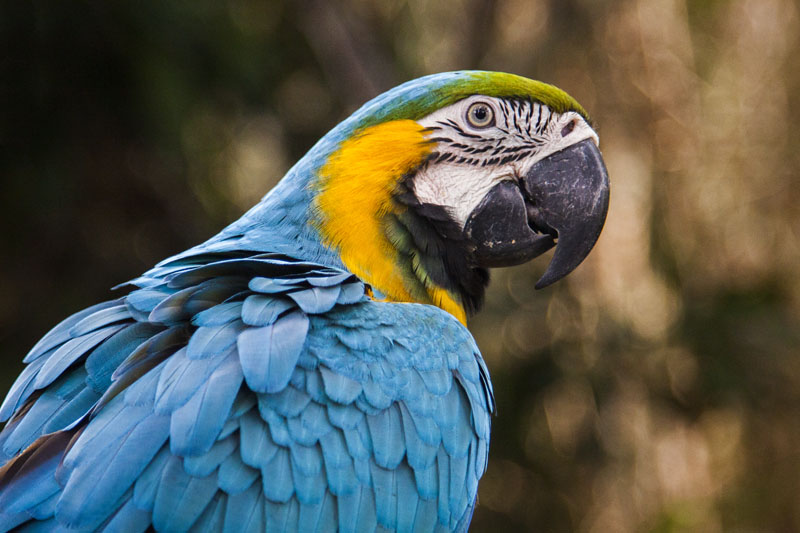
blue and yellow macaw
Bali Safari and Marine Park, Gianyar, Bali, Indonesia
Canon EOS 50D, 24-105mm f/4L IS @105mm, 1/125 sec, f/4, ISO1250
During a visit to the Bali Safari and Marine Park in January, I took a few photos of some of the resident macaws
in the park.
The bright colours of these birds were amazing, and as they were trained captive birds tethered to their perch,
I was able to get pretty close to shoot some detailed photos.
The blue and yellow macaw in particular seemed to pose happily for the camera!
For anyone considering visiting the Bali Safari and Marine Park, I can highly recommend it.
We had a great time there - the park is very large, and there's plenty to do and see.
posted Thursday, 09 June 2016, 20:03 (+0800), by Martin
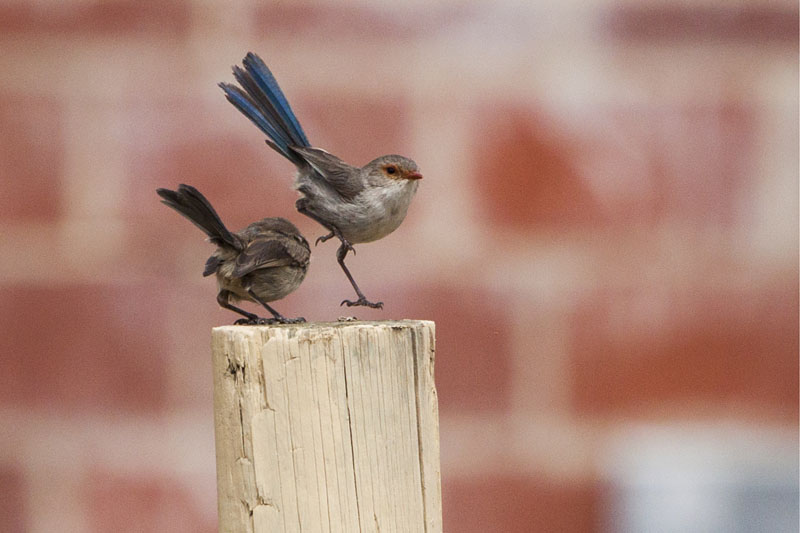
Ninja Wren!
While photographing some Splendid Fairy-Wrens in Pemberton earlier this year, there were two
wrens posing on top of a fence post. (In Western Australia, they are often referred to as "blue wrens".)
I captured a number of frames of these two birds with my Canon
EF 70-200mm f/4L lens.
It was only later that day when I was reviewing my photos on my laptop that I noticed that I had captured one of the
birds in mid-air, looking like it is performing a martial arts kick on the other bird!
I've included a couple of other photos of the same birds below, in some more "normal" poses.
posted Sunday, 13 March 2016, 13:09 (+0800), by Martin
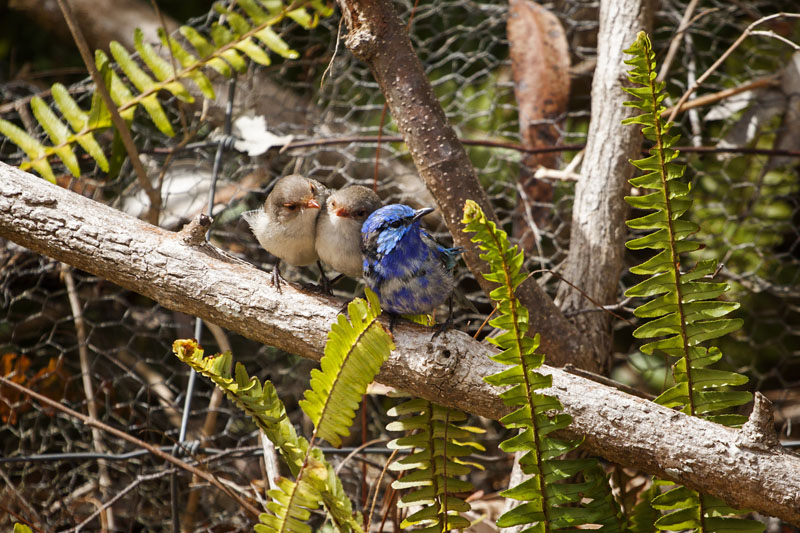
a trio of Splendid Fairy-Wrens (Western form)
Pemberton, Western Australia
Canon EOS 50D, 70-200mm f/4L @200mm, 1/1250 sec, f/4, ISO200
Here are a few more photos of the Splendid Fairy-Wrens I photographed in Pemberton earlier this year.
In the top photo, the two birds on the left (females) were both vying for the attention of the male,
both trying to get as close to him as possible, and constantly pushing each other out of the way.
It was quite entertaining to watch!
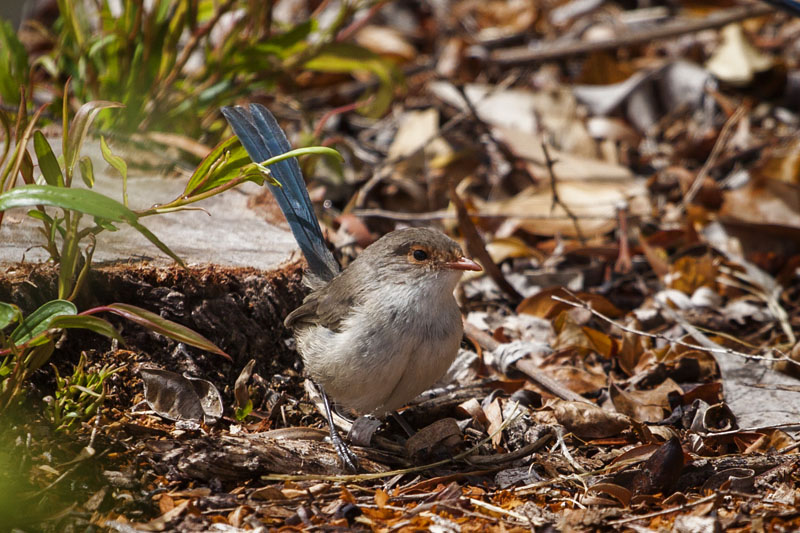
female Splendid Fairy-Wren (Western form)
Pemberton, Western Australia
Canon EOS 50D, 70-200mm f/4L @200mm, 1/2500 sec, f/4, ISO200
posted Monday, 07 March 2016, 11:16 (+0800), by Martin
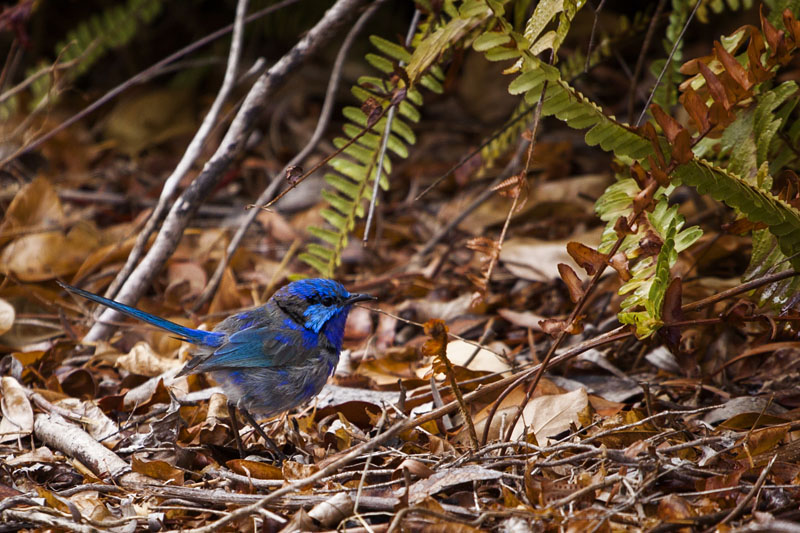
male Splendid Fairy-Wren (Western form)
Pemberton, Western Australia
Canon EOS 50D, 70-200mm f/4L @200mm, 1/800 sec, f/4, ISO200
The bright colours of the male Splendid Fairy-Wren (commonly referred to as a "blue wren" in Western Australia)
almost look too bright to be real!
The Splendid Fairy-Wren is native to large parts of Australia, and can often be seen in parts of the south west of
Western Australia.
While holidaying in Pemberton recently, there were numerous fairy-wrens around the house that we were staying at,
so I spent some time photographing them.
They were not very shy, and I found that sitting or standing still in one location allowed the
birds to get close enough for me to photograph them.
posted Sunday, 14 February 2016, 19:30 (+0800), by Martin
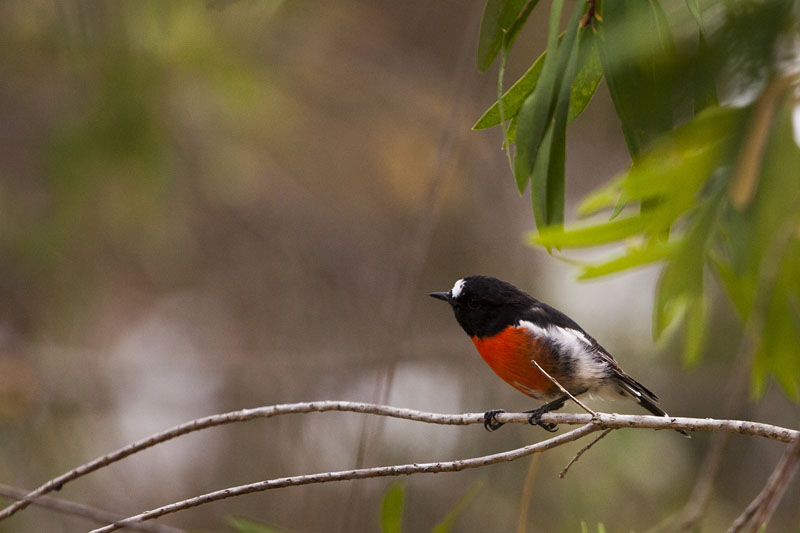
male Scarlet Robin
Pemberton, Western Australia
Canon EOS 50D, 70-200mm f/4L @200mm, 1/2000 sec, f/4, ISO640
A beautiful male Scarlet Robin, photographed while holidaying in Pemberton earlier this year.
We were staying in a
house
on the outskirts of the Pemberton town, surrounded by native trees and fruit trees.
There were plenty of birds in the trees, and this particular photo was taken
while seated on one of the verandahs of the house, where I waited for the birds
to come closer to be photographed.
posted Sunday, 23 March 2014, 20:36 (+0800), by Martin
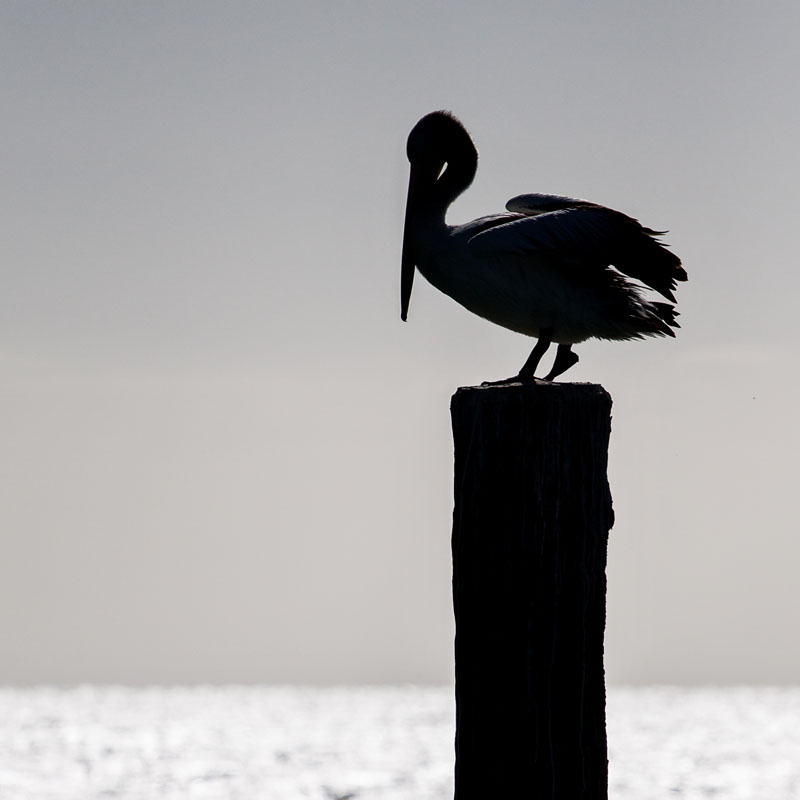
preening pelican
Woodmans Point, Western Australia
Canon EOS 50D, 70-200mm f/4L @200mm, 1/8000 sec, f/4, ISO100
I captured these silhouettes of a pelican perched on a pole at Woodmans Point a week ago.
As I was shooting almost directly into the sun, there is very little colour in these photos.
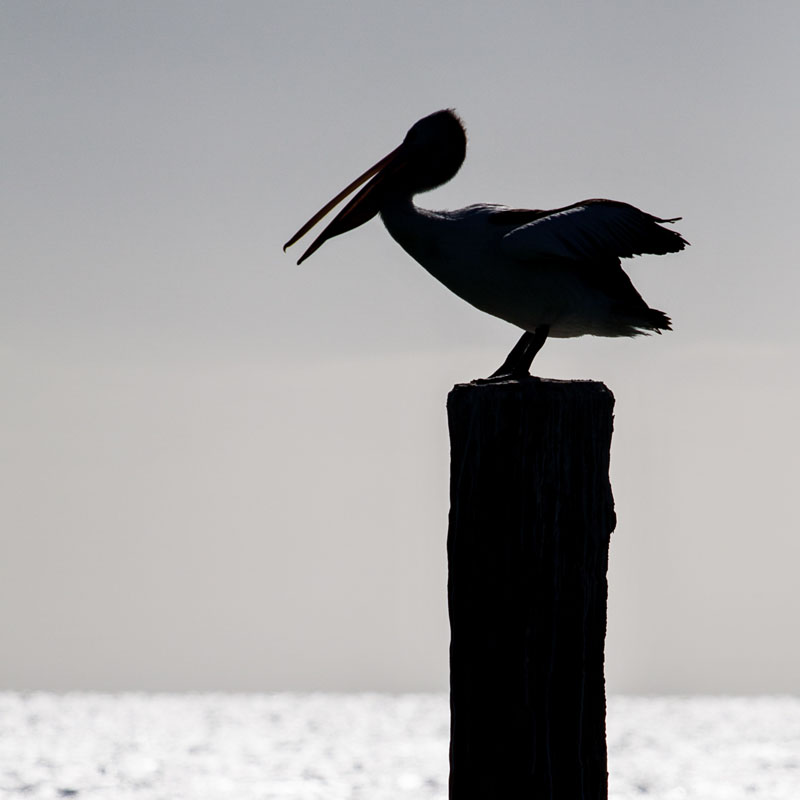
pelican stretching its wings
Woodmans Point, Western Australia
Canon EOS 50D, 70-200mm f/4L @200mm, 1/8000 sec, f/4, ISO100
posted Sunday, 02 March 2014, 14:50 (+0800), by Martin
A few months ago we added a few more yellow-breasted waxbill finches to our aviary,
and here is one of the males, posing on a twig. The waxbills are currently building nests,
so we are hopeful of seeing some baby waxbills in the future!
Our aviary runs along the side of the house, between the neighbour's garage wall and the side of our house,
with just the windows between us and the birds.
I find I can shoot the birds quite effectively from inside the house, through the glass,
as the birds are used to our presence.
Taking a camera into the aviary tends to unsettle the birds, and they hide down the other end
of the aviary.
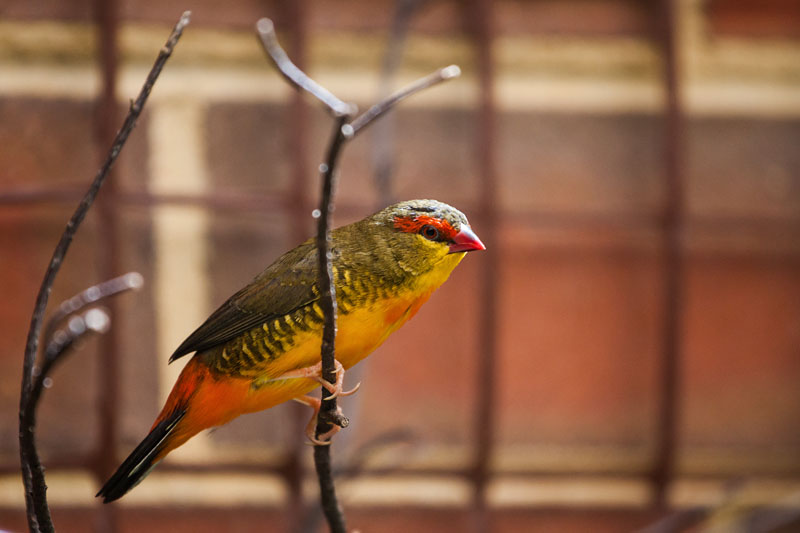
adult male Yellow-Breasted Waxbill Finch
back yard at home, Western Australia
Canon EOS 50D, 70-200mm f/4L @200mm, 1/320 sec, f/4, ISO500
posted Thursday, 15 November 2012, 21:07 (+0800), by Martin
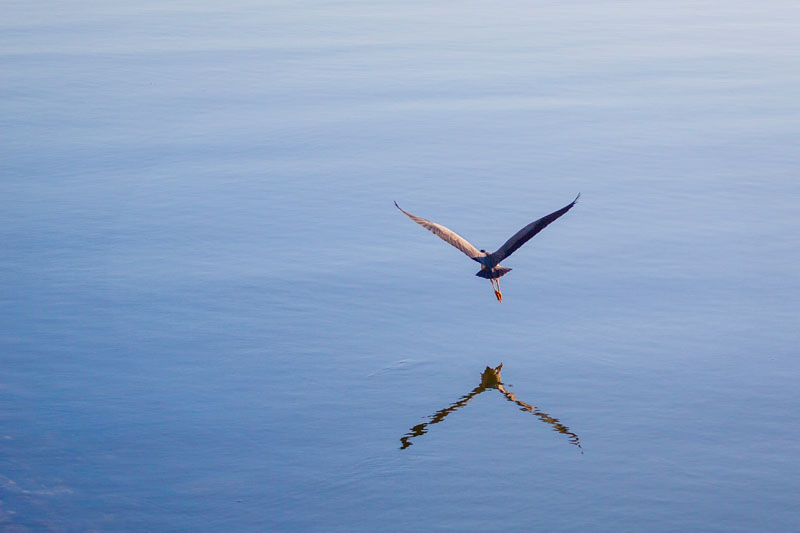
up and away
Homebush Bay, Sydney, New South Wales
Canon EOS 50D, 70-200mm f/4L @78mm, 1/1600 sec, f/4, ISO100
This is one of my favourite photos taken a few years ago, on an early-morning photography outing
with a colleage to Homebush Bay, near Sydney.
It has some similarities to the
very first photo
I posted on this blog, nearly five years ago, of a pair of
black-winged Stilts flying away from me, also over water.
|
|













